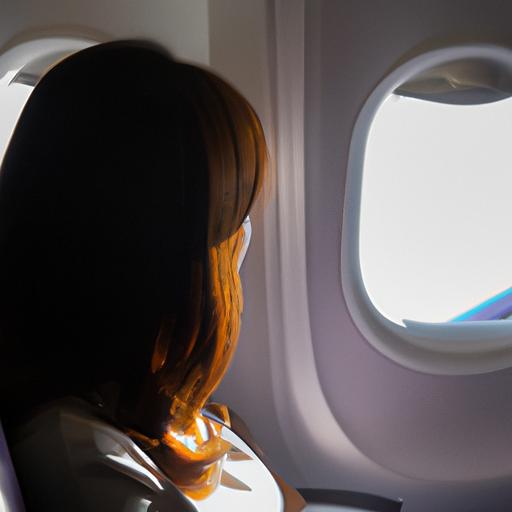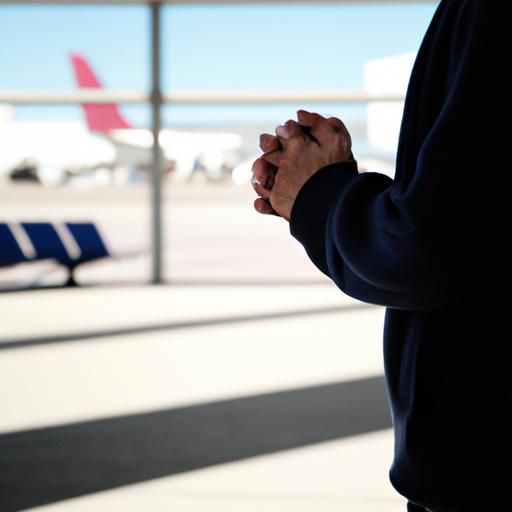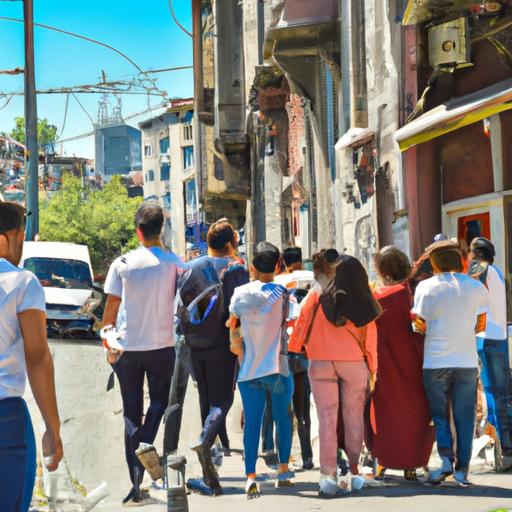Can Traveling Affect Your Period? Unraveling the Connection
Have you ever wondered how your menstrual cycle can be influenced by your travel adventures? From jet-setting across time zones to exploring diverse climates, traveling can have unexpected effects on your period. Understanding this connection is crucial for maintaining your well-being and planning your trips wisely. In this article, we’ll delve into the impact of traveling on your menstrual cycle and provide you with valuable insights to manage any disruptions that may arise.
A. Importance of understanding the impact of traveling on periods
Picture this: You’re about to embark on a long-awaited vacation to a tropical paradise. But wait, will your period coincide with your trip? Knowing the potential impact of traveling on your menstrual cycle helps you anticipate any changes and prepare accordingly. By understanding these dynamics, you can ensure a smoother journey and avoid any unwelcome surprises.
B. Brief explanation of the menstrual cycle and its regularity
Before we explore the influence of travel on your period, let’s quickly touch upon the basics. The menstrual cycle is a complex interplay of hormones and bodily processes that prepares your body for potential pregnancy each month. On average, it lasts around 28 days, but it can vary from person to person. Regularity is key for most individuals, with periods occurring like clockwork. However, disruptions caused by travel can sometimes throw this delicate balance off track.
Now that we’ve laid the groundwork, let’s dive deeper into the factors that can influence your menstrual cycle and how traveling can impact it. Stay tuned for the next section, where we’ll uncover the various elements at play and the potential effects of globetrotting on your period.
Factors Influencing Your Menstrual Cycle
When it comes to your menstrual cycle, various factors play a significant role in its regularity. Understanding these influences is crucial in comprehending how traveling can affect your period. Let’s explore some key factors that can impact your menstrual cycle and subsequently delve into how travel can disrupt them.
A. Hormonal Changes and Irregularities
Hormones, the chemical messengers in your body, orchestrate your menstrual cycle. Any hormonal imbalances or irregularities can lead to changes in the timing and duration of your period. Stress, diet, exercise, and environmental factors can all contribute to these fluctuations. It’s important to note that hormonal changes are highly individual, and what affects one person may not have the same impact on another.
B. Stress and its Effect on Periods
Ah, stress – the silent disruptor of our lives. High levels of stress can wreak havoc on your menstrual cycle. Traveling, particularly when it involves long journeys, tight schedules, and unfamiliar environments, can induce stress. This can, in turn, affect the regularity of your period. The body’s stress response can disrupt the delicate hormonal balance, leading to delayed or missed periods.
C. Changes in Diet and Exercise
When you’re on the move, your diet and exercise routines may undergo significant changes. Trying new cuisines, irregular meal timings, and altered exercise regimens can all influence your menstrual cycle. Sudden shifts in nutrient intake or significant weight fluctuations can impact hormone production and subsequently affect the timing and flow of your period.
D. Environmental Factors and Their Impact on the Menstrual Cycle
The environment you find yourself in while traveling can also affect your menstrual cycle. Changes in climate, altitude, and even exposure to different pollutants can all play a role. Extreme temperatures, high altitudes, and polluted environments have the potential to disrupt your body’s hormonal balance, leading to irregular periods.
Now that we have explored the various factors that influence your menstrual cycle, it’s time to uncover how traveling can interact with these factors and potentially affect your period. Join me in the next section as we embark on this insightful journey.
Effects of Traveling on Your Period: Unveiling the Influences
When it comes to traveling, its impact on your period goes beyond just exploring new destinations. Let’s unravel the various effects that globetrotting can have on your menstrual cycle, shedding light on the factors that come into play.
A. Disruption of routine and its influence on hormonal balance
Traveling often involves a shift in your daily routine, which can disrupt the delicate balance of hormones responsible for regulating your menstrual cycle. Changes in sleep patterns, meal times, and overall daily activities can throw your body off track, leading to irregularities in your period. Your body’s internal clock, known as the circadian rhythm, can be affected, potentially altering the timing of your menstrual cycle.
B. Jet lag and its potential impact on the menstrual cycle
Jet lag, a common phenomenon experienced when crossing multiple time zones, can wreak havoc on your period. Your body’s natural processes, including hormone production, can become temporarily disrupted as you adjust to the new time zone. This can lead to changes in the regularity and duration of your period. Hormonal imbalances caused by jet lag may result in a delayed or even skipped period.
C. Stress associated with traveling affecting menstrual regularity
Traveling, despite being exciting, can also be accompanied by stress. Whether it’s rushing to catch a flight, dealing with unfamiliar surroundings, or managing logistical challenges, stress can take a toll on your menstrual regularity. Stress triggers the release of cortisol, a hormone that can interfere with the normal functioning of the reproductive system. As a result, your period may become irregular or experience changes in flow.
D. Changes in climate and altitude affecting periods
As you journey to different climates or altitudes, your body is exposed to new environmental conditions. Extreme temperatures, humidity levels, and changes in air pressure can indirectly impact your menstrual cycle. These environmental factors can influence hormone production and circulation, potentially leading to alterations in your period. It’s not uncommon for individuals to experience lighter or heavier periods when transitioning between different climates.
Stay tuned for the next section, where we’ll provide you with valuable tips on managing your periods while exploring the world.
Tips for Managing Periods While Traveling
Traveling doesn’t have to be synonymous with period-related stress or discomfort. With some careful planning and a few essential tips, you can ensure a smooth experience even while on the go. Here are some valuable strategies to help you manage your periods effectively during your travels:
A. Packing Essential Menstrual Supplies
When it comes to managing your periods while traveling, preparation is key. Be sure to pack an ample supply of your preferred menstrual products, such as tampons, pads, or menstrual cups. Consider the duration of your trip and pack accordingly, keeping in mind that access to your preferred products may vary in different locations. It’s better to be over-prepared than caught off guard.
B. Tracking Your Menstrual Cycle to Prepare in Advance
Keeping track of your menstrual cycle is a useful practice, especially when you have travel plans. By monitoring the regularity and length of your cycles, you can anticipate when your next period is likely to occur. Armed with this knowledge, you can plan your travels, accommodations, and activities accordingly, ensuring you have the necessary supplies and comfort during your trip.
C. Managing Stress Through Relaxation Techniques
Traveling, while exciting, can also be accompanied by stress and anxiety. These factors can impact your menstrual cycle and exacerbate period-related symptoms. To counteract this, incorporate relaxation techniques into your travel routine. Engage in activities that help you unwind, such as deep breathing exercises, meditation, or gentle yoga. Taking a moment for yourself amidst the hustle and bustle of travel can work wonders for your well-being.
D. Maintaining a Healthy Lifestyle During Travel
Maintaining a healthy lifestyle while traveling can positively influence your menstrual cycle. Adequate sleep, balanced nutrition, and regular exercise all contribute to hormonal balance and overall well-being. Prioritize self-care by getting enough rest, hydrating properly, and opting for nutritious meals. Engaging in light physical activities like walking or stretching can also help alleviate any discomfort associated with your period.
By implementing these tips, you can navigate your travels with ease and ensure that your period doesn’t disrupt your plans. In the next section, we’ll explore the importance of seeking medical advice when necessary and shed light on potential underlying conditions that may affect your periods. Stay tuned for more insights!
Seeking Medical Advice: Expert Guidance for Period-Related Concerns
When it comes to your menstrual cycle, it’s important to listen to your body and seek medical advice when necessary. While occasional variations in your period are normal, certain symptoms or changes may warrant a visit to a healthcare professional. In this section, we’ll explore when it’s crucial to consult a medical expert, the potential underlying medical conditions that can affect your periods, and the available treatment options for managing irregularities.
A. When to consult a healthcare professional regarding period-related concerns
Your body has its unique way of communicating with you, and it’s essential to pay attention to any irregularities or alarming signs. If you experience persistent or severe symptoms that disrupt your daily life, it’s wise to seek guidance from a healthcare professional. Some instances when you should consider scheduling an appointment include:
-
Extreme pain: If you find yourself in excruciating pain during your period, consulting a healthcare expert can help identify the underlying cause and provide appropriate remedies.
-
Unusually heavy bleeding: Excessive or prolonged bleeding that requires frequent changing of menstrual products may be an indication of an underlying issue that requires medical attention.
-
Frequent missed periods: If your periods are consistently irregular, with lengthy gaps between cycles, it’s advisable to consult a healthcare provider to explore potential underlying causes.
B. Possible underlying medical conditions affecting periods
While occasional variations in your menstrual cycle are common, certain medical conditions can significantly impact its regularity. Some potential underlying conditions that may affect your periods include:
-
Polycystic Ovary Syndrome (PCOS): A hormonal disorder characterized by the formation of cysts on the ovaries, PCOS often leads to irregular periods, excess hair growth, and fertility issues.
-
Endometriosis: This condition occurs when the tissue lining the uterus grows outside of it. It can cause severe pain, heavy bleeding, and irregular periods.
-
Thyroid disorders: Imbalances in thyroid hormones can disrupt the menstrual cycle, leading to irregular periods or even complete cessation.
C. Treatment options available for managing irregular periods
Thankfully, various treatment options are available to manage irregular periods and alleviate associated symptoms. Depending on the underlying cause, healthcare professionals may recommend:
-
Hormonal therapy: This approach involves the use of birth control pills or hormone-regulating medications to regulate the menstrual cycle and manage symptoms.
-
Lifestyle modifications: Making changes to your diet, exercise routine, and stress management practices can positively impact your menstrual cycle.
-
Surgical interventions: In severe cases, surgical procedures may be necessary to address underlying conditions like endometriosis or fibroids.
Remember, every individual is unique, and seeking medical advice tailored to your specific needs is crucial for effective management of irregular periods. Now that we’ve explored the importance of expert guidance, let’s move on to the concluding section, where we’ll recap the main points discussed and offer some final thoughts on the impact of traveling on your period.






